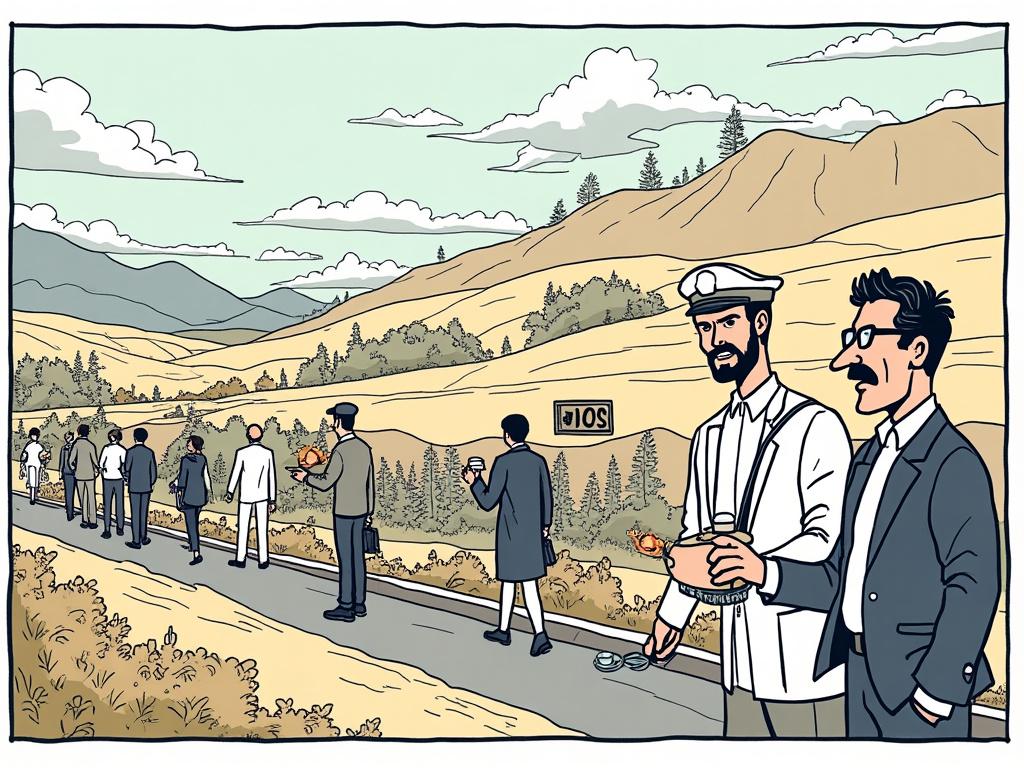
Discovering Greece’s Liquid Gold: The Ultimate Guide to Olive Oil Production Tours
Reading time: 12 minutes
Table of Contents
- Why Greece Leads the Olive Oil World
- Planning Your Olive Oil Adventure
- Premier Olive Oil Regions to Explore
- What to Expect on Production Tours
- Timing Your Visit for Maximum Impact
- Beyond the Grove: Cultural Immersion
- Your Olive Oil Journey Begins
- Frequently Asked Questions
Ever wondered what makes Greek olive oil so extraordinary? You’re about to discover why millions of travelers are trading typical beach vacations for immersive olive grove experiences that transform how they understand this ancient craft.
Here’s the straight talk: Greece isn’t just another Mediterranean destination—it’s the birthplace of olive cultivation, where 4,000-year-old techniques meet modern excellence. With over 130 million olive trees covering 60% of the country’s cultivated land, Greece produces some of the world’s finest extra virgin olive oil.
Why Greece Leads the Olive Oil World
Greece consistently ranks among the top three olive oil producers globally, but it’s not just about quantity—it’s about unmatched quality. Over 80% of Greek olive oil qualifies as extra virgin, the highest grade possible, compared to just 30% in many other producing countries.
The secret lies in Greece’s unique terroir: Mediterranean climate, volcanic soils, and indigenous olive varieties like Koroneiki and Kalamata that have evolved over millennia. As Dimitris Papadakis, a third-generation olive farmer from Crete, explains: “Our trees don’t just grow olives—they tell stories. Some of our groves have been producing for over 800 years.”
The Numbers That Matter
Greek Olive Oil Production Comparison
Planning Your Olive Oil Adventure
Well, here’s the strategic approach: Successful olive oil tours aren’t about checking boxes—they’re about deep cultural connections and sensory education that transforms your relationship with food.
Quick Scenario: Imagine standing in a 500-year-old olive grove at sunrise, learning to identify ripe olives by touch while breathing in the earthy Mediterranean air. What questions would you ask the master miller? Let’s dive deep and turn curiosity into comprehensive understanding.
Essential Preparation Steps
1. Research Farm Philosophies: Not all olive farms operate the same way. Some focus on traditional stone-mill methods, while others showcase cutting-edge cold-extraction technology. Maria Kostakis from Olympia explains: “Visitors should understand that each farm tells a different chapter of the olive oil story.”
2. Book Seasonal Experiences: Harvest season (October-December) offers the most dynamic experience, but spring visits provide intimate tastings without crowds. Peak summer can be overwhelming but offers extended daylight for photography.
3. Prepare Your Palate: Start tasting different olive oils at home to develop your sensory vocabulary. Learn terms like “peppery,” “fruity,” and “grassy”—you’ll appreciate the tours more deeply.
| Tour Type | Duration | Price Range (€) | Best For |
|---|---|---|---|
| Basic Grove Walk | 2-3 hours | 25-45 | First-time visitors |
| Production Workshop | Half day | 65-120 | Culinary enthusiasts |
| Harvest Experience | Full day | 95-180 | Hands-on learners |
| Multi-day Intensive | 2-5 days | 250-750 | Serious food professionals |
Premier Olive Oil Regions to Explore
Crete: The Powerhouse Producer
Crete produces 40% of Greece’s olive oil, with the Koroneiki variety creating oils renowned for their intense flavor and exceptional health benefits. The island’s unique microclimate, influenced by both Mediterranean and North African weather patterns, creates optimal growing conditions.
Standout Experience: The Biolea organic farm in Kolymvari offers visitors a chance to participate in traditional harvesting methods using wooden rakes, followed by immediate cold-pressing demonstrations. Their guided tastings compare oils from different harvest dates, revealing how timing affects flavor profiles.
Peloponnese: Ancient Traditions, Modern Excellence
Home to Kalamata olives and the birthplace of olive cultivation, the Peloponnese region combines historical significance with innovative farming practices. The Messenian Peninsula alone hosts over 120 olive oil producers, many using PDO (Protected Designation of Origin) certification.
The region’s volcanic soil and mountain-to-sea elevation changes create distinct flavor profiles within just a few kilometers. Visitors often discover that olive oil from coastal groves tastes markedly different from mountain-grown varieties.
Lesvos: Island Innovation
Lesvos produces some of Greece’s most awarded olive oils, with 11 million olive trees covering 40% of the island. The UNESCO-recognized traditional landscape showcases ancient techniques alongside modern sustainability practices.
What to Expect on Production Tours
Ready to transform curiosity into expertise? Here’s what awaits you on a comprehensive olive oil production tour:
Grove Education
Tours typically begin in the olive groves, where guides explain tree varieties, pruning techniques, and soil composition. You’ll learn to identify optimal harvest timing by examining olive color, firmness, and oil content. Many farms use refractometers to measure sugar levels, demonstrating the science behind quality assessment.
Milling Process Immersion
The heart of any tour involves witnessing olive transformation from fruit to oil. Traditional stone mills operate alongside modern centrifugal systems, allowing visitors to compare methods and taste differences. The cold-extraction process maintains temperatures below 27°C (80°F), preserving beneficial compounds and flavor integrity.
Pro Tip: The right preparation isn’t just about learning processes—it’s about understanding how each decision impacts the final product’s health benefits and taste complexity.
Professional Tasting Sessions
Guided tastings follow sommelier-style protocols: warming oil in cupped palms, inhaling aromatic compounds, and evaluating taste progression from initial fruit flavors to peppery finish. Expert guides help visitors identify defects like mustiness or rancidity while appreciating positive attributes.
Timing Your Visit for Maximum Impact
Harvest Season (October-December): The most exciting but crowded period. Farms operate at full capacity, offering visitors authentic working experiences. However, book well in advance and expect higher prices.
Spring (March-May): Ideal for intimate experiences and detailed tastings. New oils have settled, developing complex flavors. Weather is pleasant for grove walks, and prices are more reasonable.
Summer (June-August): Extended daylight allows comprehensive tours, but heat can be intense. Many farms offer early morning or evening experiences to avoid peak temperatures.
Beyond the Grove: Cultural Immersion
The most transformative olive oil experiences extend beyond production into Greek cultural fabric. Many farms offer cooking classes using their oils, traditional bread-making workshops, and archaeological site visits showcasing ancient olive presses.
Consider combining your olive oil education with accommodation in traditional stone houses or modern villas. Many visitors discover that understanding Greek olive oil culture enhances their appreciation for the entire Mediterranean lifestyle. If you’re considering a deeper connection to Greek culture, you might even explore opportunities to buy house in greece, allowing for regular immersion in this ancient agricultural tradition.
Family-run farms often invite visitors for traditional meals featuring their oils, homemade bread, and regional specialties. These experiences provide cultural context that transforms olive oil from commodity to cultural heritage.
Your Olive Oil Journey Begins
Your transformation from olive oil curious to genuinely knowledgeable starts with strategic planning. Here’s your actionable roadmap:
Immediate Actions:
- Research farms in your preferred Greek region, focusing on their production philosophy and tour offerings
- Start developing your palate by tasting different Greek olive oil varieties available locally
- Book accommodations near olive-producing areas for authentic immersion experiences
- Learn basic Greek phrases related to olive cultivation to enhance your connection with local farmers
- Plan your visit timing based on whether you prioritize harvest excitement or intimate learning experiences
The olive oil industry in Greece continues evolving, with younger generations combining traditional wisdom with sustainable innovation. Your visit contributes to preserving this ancient craft while supporting local communities who’ve maintained these practices for generations.
What aspect of olive oil production most excites your curiosity—the ancient agricultural techniques, the modern scientific approaches, or the cultural traditions that surround this liquid gold?
Frequently Asked Questions
How much should I budget for a comprehensive olive oil tour in Greece?
Budget €150-300 per person for a full-day experience including transportation, guided tour, tasting session, and traditional meal. Multi-day intensive experiences range from €400-800 depending on accommodation level and included activities. Basic grove walks start around €35-50 per person for 2-3 hours.
Is it better to visit during harvest season or other times of year?
Harvest season (October-December) offers the most dynamic experience with active production, but requires advance booking and higher costs. Spring visits (March-May) provide intimate tastings and pleasant weather with lower prices. Summer offers extended daylight and comprehensive tours but can be quite hot. Choose based on whether you prioritize excitement and authenticity or comfort and detailed learning.
What should I look for when selecting an olive oil tour operator?
Prioritize family-owned farms with PDO certification, multi-generational experience, and English-speaking guides who can explain technical processes clearly. Look for tours that include grove walks, milling demonstrations, and professional tastings. Avoid purely commercial operations that focus on sales rather than education. Read recent reviews focusing on educational value and authentic cultural experiences rather than just entertainment value.

Article reviewed by Ethan Blackwell, Build-to-Rent (BTR) Pioneer | Institutional-Grade Residential Portfolios, on June 6, 2025




